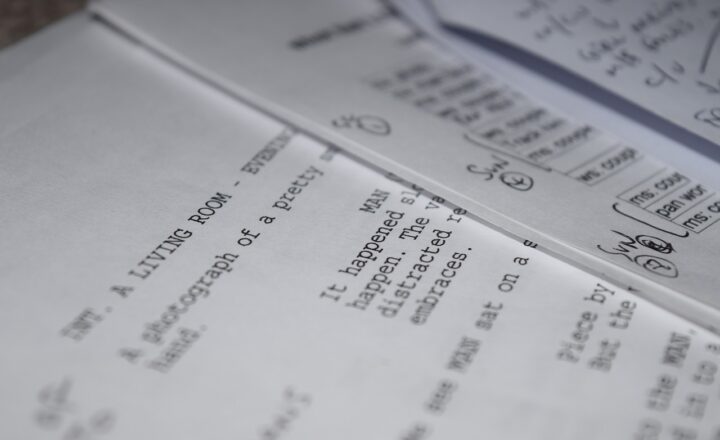The Creepiest Zombie Theories That Will Make You Double-Lock Your Doors
November 13, 2024

In popular culture, zombies have been long associated with terror and chaos. The imagery of the undead rising to feast on the living is not just a staple of horror films and television shows; it also gives rise to a plethora of bizarre theories regarding their existence. But beyond the entertainment value, these theories provoke deep thoughts on humanity, science, and morality. Whether you’re a die-hard horror fan or someone who’s just curious about the undead phenomenon, the following theories will make you reconsider that creak of the floorboard behind you.
1. The Psychological Zombie: Fear of Losing Control
The idea of zombies can be traced back to our fear of losing control over our own minds and bodies. This psychological theory suggests that zombies symbolize the ultimate loss of self: a body that moves but lacks autonomy, free will, and personal identity. This fear resonates deeply in a world where issues like addiction, mental health, and neurological disorders are prevalent.
As we witness individuals becoming mere shells of their former selves due to various conditions, the representation of zombies as mindless creatures forces us to confront uncomfortable truths about ourselves and those around us. It underscores the vulnerability that exists in our own humanity.
2. Scientific Zombies: Pathogens and Manipulation
Many theories propose that a scientific breakthrough could lead to a legitimate case of zombies. One such theory delves into parasitic infections that manipulate the host’s behavior. For instance, the Toxoplasma gondii parasite affects rodents, causing them to lose their fear of cats, leading to their demise. Imagine a variant of such a pathogen that could infect humans, turning them into aggressive beings devoid of rational thought.
Even more chilling is recent research into prion diseases like Mad Cow Disease, which can lead to erratic behavior and a breakdown of cognitive functions. Though far-fetched, the idea of a pathogen causing real-life zombie-like behavior is alarmingly closer to science than fiction.
3. Social Commentary: Consumed by Consumerism
Zombies often serve as a reflection of societal concerns. In post-apocalyptic narratives, they represent the mindless consumption of contemporary society, a critique of our relentless pursuit of consumerism. With each undead shamble, there’s a slight reminder that, in an age of hyper-connectivity and materialism, we may be losing our individualism and critical thinking.
George A. Romero, the pioneer of the modern zombie genre, often used his films to critique society. For instance, in “Dawn of the Dead,” the mall setting symbolizes the mindless consumer culture where shopping becomes an addiction, and the zombies act as surreal representations of consumers trapped in a cycle of desire and consumption.
4. The Zombie Apocalypse: A Realistic Scenario
Perhaps one of the creepiest theories surrounding zombies is the real possibility of an apocalypse. Taking into account the rapid spread of diseases, growing antibiotic resistance, and global pandemics, some scientists suggest that a ‘virus’ could produce zombie-like symptoms.
Drawing from examples such as rabies or the H1N1 virus, it is theorized that pathogens could lead to hyper-aggressive behavior and madness in those affected. Imagine a world where public health collapses, and a single bite can transform innocent individuals into violent beings. It’s no wonder that the CDC even published a tongue-in-cheek zombie preparedness guide, tapping into the cultural zeitgeist while addressing genuine disaster preparedness.
5. The Philosophical Zombie: Challenge of Consciousness
Delving deeper into philosophical conversations, the concept of philosophical zombies presents a bizarre, yet thought-provoking notion: beings that are physically identical to humans but lack conscious experience. This theory primarily serves to question the essence of consciousness and what it means to be alive. Can beings without awareness be considered human?
This theory raises chilling questions about artificial intelligence, morality, and ethical implications in the realm of scientific advancements. As technology evolves, the potential emergence of lifelike AI that lacks consciousness may trigger ethical debates akin to those surrounding zombies — what rights, if any, do they hold?
6. Government Experiments: Conspiracy Theories on Zombies
Conspiracy theories flourish in society, and zombies are often tied to clandestine government experiments. Rumors abound that agencies like the CIA have engaged in inhumane projects involving psychotropic drugs meant to control behavior. This fear taps into societal paranoia regarding governmental oversight and the lengths that authorities may go to maintain control.
Many believe that zombies could be created through mind control techniques, possibly related to the infamous MK-Ultra project. Such theories suggest that the creation of a zombie-like drone populace may not be as rebellious as portrayed in movies but could reflect our fears of loss of freedom.
7. The End of Humanity: Final Warning Signs
Finally, the ultimate zombie theory ponders what the existence of zombies might indicate about the fate of humanity itself. Throughout history, apocalyptic narratives often arise during times of great socio-political uncertainty. The zombie trope, often associated with decay and collapse, suggests that we might flirt with our own demise through negligence, conflict, or catastrophe.
This view is highlighted by the global challenges we face today, including climate change, political polarization, and societal unrest. As humanity inches closer to potential downfall, the zombie apocalypse serves as a metaphorical warning: pay attention, adapt, and respond before it’s too late, lest we become the undead ourselves.
Conclusion
From psychological fears to philosophical inquiries, the many theories surrounding zombies serve as mirrors reflecting humanity’s and society’s imperfections. While they remain a staple of entertainment, they open discussions on fears related to control, consumption, identity, and the fragility of consciousness. Perhaps the next time you hear a strange noise in your home, it won’t just be the house settling — it may be a lingering feeling of uncertainty in our modern world that brings forth our innermost fears. Lock the doors, check the windows, and remember: sometimes, the scariest monsters are those created by society itself.







